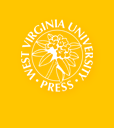Although this series is open to all, the editors of Borderless are committed to publishing books written by women, people of color, people from the Global South, people from gender and ethnic minorities, people with disabilities (hidden and visible), Indigenous, Native, and First Nations people, stateless persons, and activist-intellectuals on the frontline of coalition and change. Series editors are open to working with authors whose first language is not English and encourage scholars writing in Arabic, Chinese, French, Spanish, and Portuguese to contact us for more information.
Borderless is currently accepting proposal submissions on an ongoing basis. Your proposal should be a Word document or PDF that includes the following:
- Project title and subtitle
- Names and affiliations of all authors/editors/contributors and CVs for authors/editors
- Overview of the project (from a few paragraphs to a few pages)
- Table of contents and detailed chapter outline
- Abstracts (for edited collections only)
- Manuscript specifics: estimated length (in word count), delivery date, art program (images, photographs, tables, figures, maps, etc.)
- Primary audience: e.g., academics, graduate or undergraduate students, activists, the general public (if the book is intended for classroom adoption, please list the courses for which you think it would be most appropriate)
- Three to five possible external reviewers (include titles, affiliations, and email addresses)
- Sample material: introduction and one substantive chapter
Please be sure your proposal answers the following questions:
- Borderless aims to publish manuscripts that cross disciplinary boundaries. What disciplines does the manuscript engage? (Please identify specific fields, theories, and methods.)
- How does your book present an innovative way to think about action-oriented social justice research that is community centered and community driven?
- How does your manuscript engage with interdisciplinary solutions to global injustice, connecting communities of resistance, and forming coalition and solidarity?
Project proposals can be submitted to Lupe Davidson (lupe.davidson@mail.wvu.edu). In your email, please indicate which editor should review the project based on their areas of specialty:
Lupe Davidson: black feminism, women of color feminism, structural racism, gender and development, rhetorical theory/criticism, philosophy of race, social movement theory and social activism, anti-oppressive research methodologies, intersectionality, grassroots women’s organizations, LGBTQ+, women and peace building
John C. Harris: urban planning, gender and development, non-governmental organizations, participatory action research, photovoice and community engaged research, gender and violence, peace and development, genocide, built environment, post-conflict situations, grassroots women’s organizations, women and peace building
Jonathan C. Hall: ecology, settler colonialism, indigenous studies, geography and race, resilient communities, wild foods, food security, hunting and race, farming and seed cultivation, diversifying ecology and ecological research, conservation, water
David Monk: peace and justice studies, vocational education training (VET), transformative teaching and critical pedagogy, Canadian and Indigenous studies, land use, arts-based research, out of school youth, development in the Global South, non-governmental organizations, water use, water defenders, environmental justice, post-conflict societies, disability and development, women and peace building

